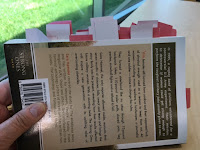The Strong Ones: How a Band of Civilian Women Made Their Mark on the Army, by Sara Hammel
(Sara Hammel Books, 2021, $14.95, 397 pp)(watch the trailer) Study Hard, Play Hard, Bond Tightly
A college sorority. . . or not?
Work Out Hard, Play Hard, Bond Tightly
Soldiers in a small unit and the 40-odd women in the 1995 study which proved to the Army that civilian women (and therefore, female soldiers) can build strength over a period of seven months. But why?
Soldiers (and summer camp counselors) are together 24/7. Soldiers not only work together but they work out together, and socialize together, as do their families. Their kids go to school together. And when soldiers deploy, their families come together in support. And when soldiers transfer to another duty station, they don't say goodbye, but rather, something along the lines of 'until we meet again' because in a 20-year career, chances are that they will serve together in a different location.
A Study, A Book in Three's
How I wish author and journalist Sara Hammel had found a stellar editor and publisher for The Strong Ones: it is a story that deserves to be told everywhere and is replete with drama - not only physical tribulations but emotional ones as well.
Part one: the selection of 40-some mostly civilian women in Massachusetts willing to work out vigorously for seven months to see how strong they can become, to see if they can do any job in the military, which, in 1995, is limited in opportunities for women. They dragged and carried heavy loads, ran long distances, jumped higher than they thought they could.
Part two: the training and the increasing support and cohesion of the four groups of women in their physical struggles to work out (and some, to lose weight).
Part three: 25 years later and what happened to the women and the men who trained them. Where are they now and what have they accomplished - and how do they remember their life-changing experience in the 90s?
Military Book Club
I read this book for my military book club (of which I am usually the token woman, not unusual in the military). We are all older so some of the group did not serve with very many women if they served when young. We are officers and enlisted, academy grads and ROTC and Basic grads - and boot camp grads. We are Army, Navy, and Air Force. But what we mostly are is a small band of people, some of whom served in war and some who didn't, but who all shared the culture of the military. We are immediately comfortable with each other even if we served during or in different wars or conflicts.
Unfortunately, I had not finished the book when the book club met, so I mostly listened. And my take-away lesson is that men are different from women, even in the military because the men discussed how they would have reacted if the book had been about them, and not women. The women bonded, and fell in love, and were proud to lose weight or frustrated to not lose weight. And they cried, and they supported each other.
On the other hand, my group of men said they probably would not have acted like that but would have competed against each other more, rather than cooperated and supported each other. They would have joked around more and tried to outdo each other.
And I mostly listened.
And, After the Book Club Meeting
Later, I finished the rest of the book, the more than 2/3 remaining. And I loved the end, how the women turned out. They actually had a 25-year reunion for as many as could be reached and could travel to the reunion. And they reminisced. And they relived a few misunderstandings and a few that not both parties remembered.
I sincerely hope the author does find an editor and publisher and perhaps a different title for maybe even a movie - The Strong Ones is a story to be read. (And I cannot believe that I was in the Army during this period of seven months and never heard about the 'experiment.')
By the time the book club met again, I had finished The Strong Ones and reported on my impressions.
Number one, that not all groups of women going through a similar experience will bond as closely (being together only one hour a day on weekdays and getting together on weekends to party) and not every woman in a closely-knit group will feel as close to the others.
And secondly, I remembered the book club members that the book was written and experienced by a journalist who experiences things with a different eye, looking into things more deeply.
It would have been interesting if our book club also had had another one or two women to validate or at least test my impressions. Nevertheless, this experiment became more important as time went on, as today nearly all military jobs are open to women.
And finally, the author opens with the story of a young woman today who works hard to join the military and how she succeeds in becoming an officer - and who she is today, in part due to The Strong Ones. We meet this young woman periodically and, in the end, find out who she really is.
Below: pages that I highlighted with notes to review for this book review (and which I totally forgot about until after I finished writing!) From the front, from the back of the book












